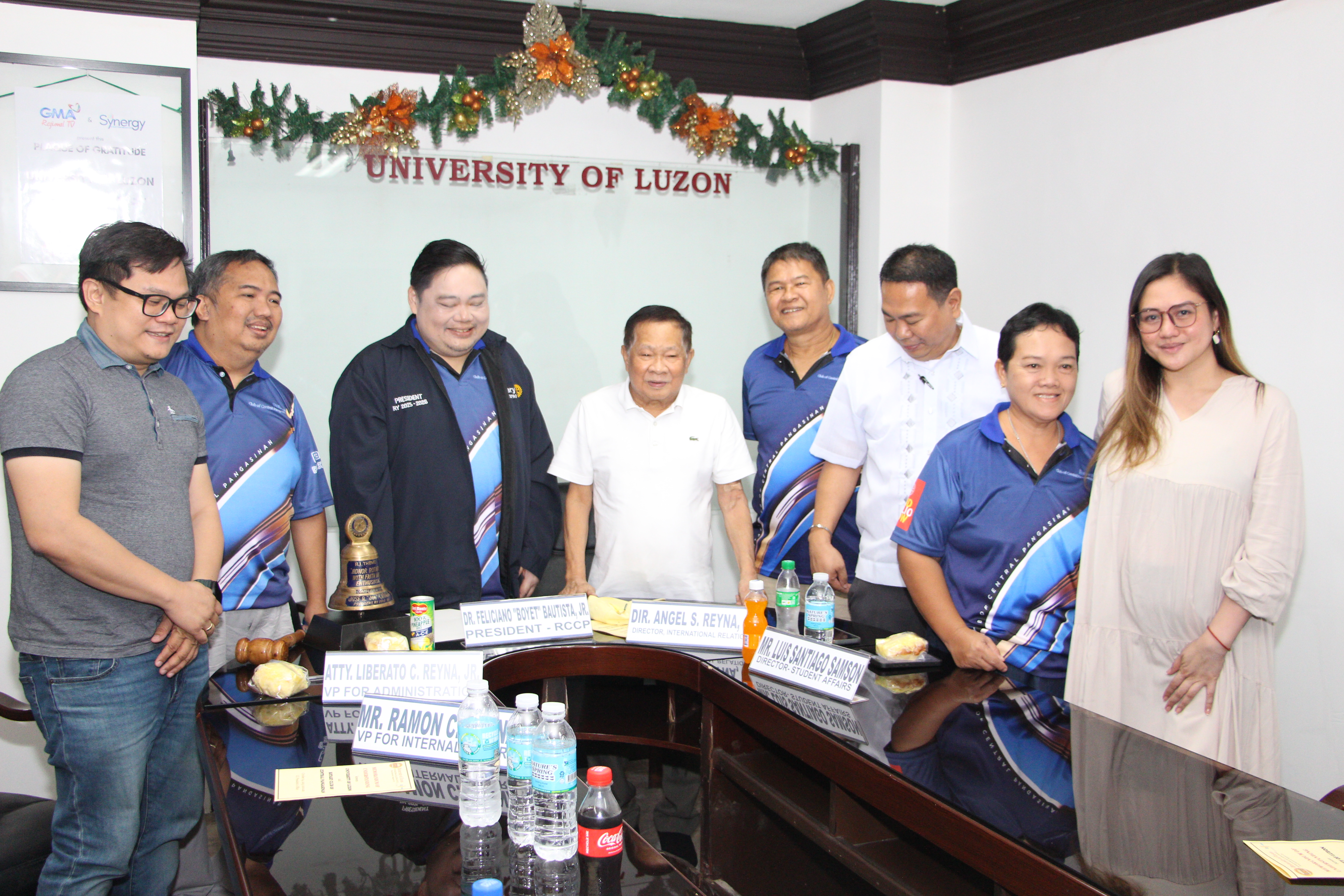University of Luzon and Rotary Club Ink Partnership for Community Service
Posted on 29th of Oct 2025 by UL AdministratorThe University of Luzon (UL) and the Rotary Club of Central Pangasinan (RCCP) officially solidified a significant, three-year partnership aimed at enhancing experiential learning and fostering civic responsibility among the student body. The formalization took place on October 29, 2025, with the signing of a Memorandum of Understanding (MOU) at the UL President’s Office, marking a new chapter of comprehensive community collaboration for the institution. The agreement, signed by University President Dr. Luis M. Samson, Jr. and RCCP President Feliciano V. “Boyet” Bautista, Jr., establishes a mutual commitment to leveraging the university’s academic resources and the civic organization’s humanitarian reach for the benefit of the local community.
The core of the partnership revolves around providing Luzonians with practical, real-world opportunities to engage in meaningful service. Under the agreement, UL students will be granted opportunities to serve as volunteer manpower, project assistants, and technical support staff for a wide array of RCCP-led initiatives. These activities are designed to be varied and impactful, including participation in vital medical missions, crucial literacy programs, immediate disaster relief operations, and long-term environmental sustainability initiatives. This direct involvement ensures that the theoretical knowledge gained in the classroom is immediately applied to address pressing social needs.
Crucially, the MOU outlines a pathway for the integration of RCCP activities into the academic life of the University of Luzon. The institution may align these civic activities with its National Service Training Program (NSTP), as well as practicum, internship, or service-learning curricula, subject to existing academic guidelines. This integration is designed to ensure that community service is recognized not just as an extracurricular pursuit, but as a foundational element of a well-rounded and professionally relevant education. Furthermore, the collaboration extends to leadership and values formation; RCCP members, who are established community leaders and professionals, are expected to conduct talks, mentorship programs, and leadership training sessions tailored for Luzonians, aiming to impart essential ethical, civic, and professional values that extend beyond technical competence.
The agreement also champions knowledge exchange between the two parties. RCCP members will share their professional expertise and industry insights in student forums, enriching the educational experience through practical perspective. In return, University of Luzon faculty may offer their academic support, specifically assisting with the technical documentation and objective evaluation of community impact resulting from joint projects. This ensures that the efforts are well-documented and continuously improved upon through evidence-based assessment. This comprehensive framework of volunteerism, experiential learning, and knowledge transfer underscores the University of Luzon’s commitment to producing graduates who are not only competent professionals but also responsible and ethically driven citizens ready to lead and serve.
The collaborative activities formalized by this Memorandum of Understanding significantly contribute to the achievement of several United Nations Sustainable Development Goals (SDGs). The provision of volunteer support for medical missions and literacy programs directly addresses SDG 3 (Good Health and Well-being) by improving community health outcomes, and SDG 4 (Quality Education) by broadening access to learning and skills development through service-learning and leadership training. Furthermore, the joint efforts on environmental initiatives align with SDG 13 (Climate Action), while the fundamental nature of the partnership—bringing together an academic institution and a civic organization to work for societal betterment—embodies the spirit of SDG 17 (Partnerships for the Goals), recognizing that collective action is essential for sustainable development.






